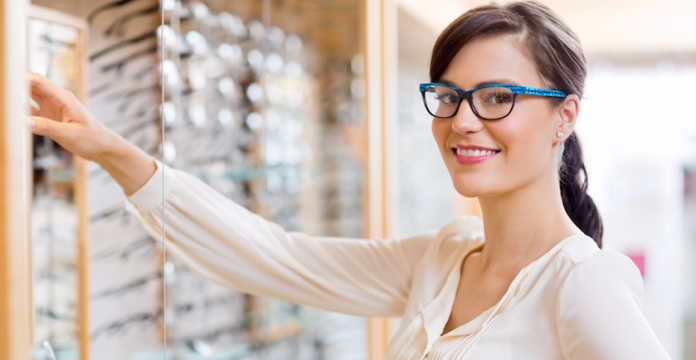
Did you know that some experts believe exposure to artificial light is one of the largest (and most overlooked) health risks of living in the modern world? What could be so dangerous about exposure to blue light?
First of all, you should know that the sun provides us with natural blue light, and this light is a signal for us to wake up and greet the day. When the sun sets and the blue light goes away, we get the signal to go to sleep. But in modern times, we have greatly extended our exposure to blue light through the use of computers, smartphones, LED lights, and TV, not to mention all the other artificial light we encounter throughout the day.
Read about 5 ways to end sleep disruption from computer and tablet blue lights
That’s when the body becomes confused-when is it time to go to sleep? Research suggests that exposure to blue light after sundown interferes with circadian rhythm and reduces production of the sleep hormone melatonin.
Blue light blocking glasses to the rescue
The solution might just be blue light blocking glasses. These glasses were popular during the sixties and seventies, when it was common to wear glasses with rose, orange, purple, and amber colored lenses. Besides looking cool at the time, these glasses also blocked blue light. The glasses are regaining popularity as experts are encouraging everyone to wear them at night to block most blue light. You can find lots of options like these on Amazon.
If you need to wear prescription glasses, you can even get a clear layer on the lenses that helps block blue light, or you can buy clip-on blue light blockers for your current lenses.
Blue light blocking health benefits
Some researchers have noted that use of blue light blocking glasses overnight for one week among people with bipolar disease resulted in a significant improvement in mania symptoms. Another benefit of blue light blocking glasses may be better sleep and quality of life. Studies have shown that exposure to artificial light at night (especially from LED lights) can result in problems with sleep.
More specifically, people living in communities with bright nighttime light (e.g., LED streetlights) have been shown to have reduced sleep times, excessive sleepiness during the day, impaired functioning during the day, poor sleep quality, and obesity. Blocking blue light can also help protect your eyes from developing macular degeneration, a leading cause of blindness among older adults.
How to protect your eyes against blue light
In addition to wearing blue light blocking glasses whenever you are exposed to artificial light, another way to protect your eyes is to get plenty of the antioxidants lutein and zeaxanthin. Both lutein and zeaxanthin are highly concentrated in an area of the retina responsible for detailed central vision. Zeaxanthin is not produced by the body so you must get it from food and/or supplements.
Read about 7 common superfoods to support eye health
Both of these antioxidants can absorb blue light and interfere with free radicals before they damage vision. Green leafy vegetables are great sources of both of these phytonutrients, while yellow- and orange-colored fruits and vegetables provide good amounts as well.
Other suggestions include:
• Install blue-light-blocking software on your computer or smart phone
• Use a blue light blocking screen on your electronic devices
• Keep your bedroom pitch black while you sleep. Blackout shades or drapes are helpful. Even a little bit of light can disrupt your circadian rhythm. You could also wear an eye mask.
Sources
Cortez R. Protect eyes from computer blue light. Life Extension. February 2017.
Mercola.com. Are there benefits to blue light blocking glasses?
Henriksen TEG et al. Blue-blocking glasses as additive treatment for mania: a randomized placebo-controlled trial. Bipolar Disorders 2016 May; 18(3): 221-32




